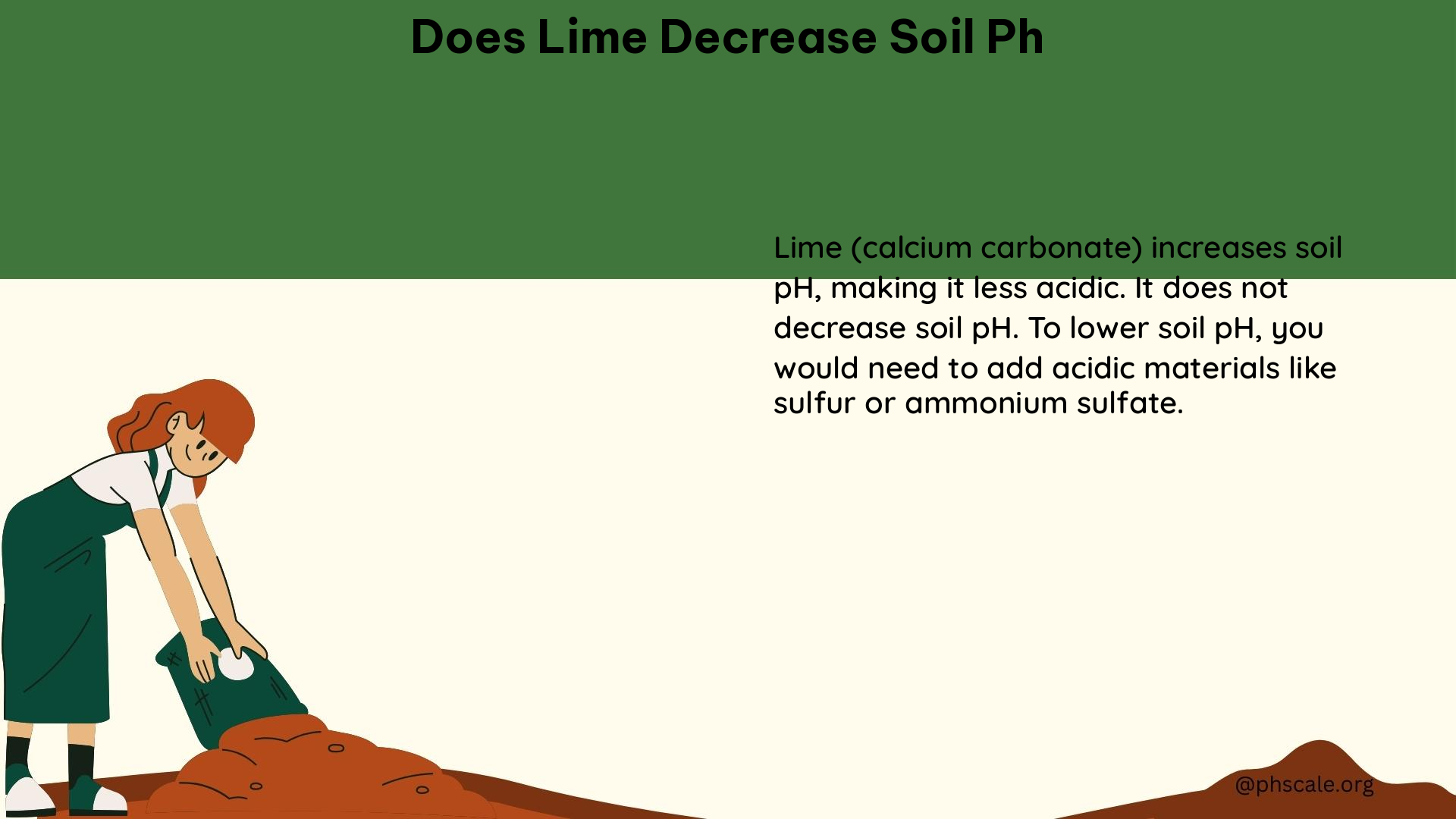No, lime does not decrease soil pH. In fact, lime is used to raise soil pH and neutralize soil acidity. Soil acidity can reduce crop production by directly affecting roots and changing the availability of essential nutrients and toxic elements. Adding lime or other materials can raise soil pH to the ideal range for crop production, creating an environment for healthy microbial function and increasing the levels of calcium or magnesium ions.
How Lime Affects Soil pH
-
Neutralization of Acidity: Lime neutralizes both active and reserve acidity in the soil. Active acidity is the hydrogen ion concentration in the soil solution, while reserve acidity is the acid-causing elements held by cation exchange sites of soil particles and organic matter. As active acidity is neutralized, reserve acidity is released into the soil solution, maintaining the active acidity or pH.
-
Time Required for Neutralization: Lime takes time to neutralize soil acidity. It often takes six months to a year for pH changes to occur significantly. The rate of neutralization depends on factors such as particle size and mixing with the soil.
-
Lime Application Considerations: Lime application rates should be adjusted based on the depth of incorporation. For no-till systems, lime is surface-applied and not mixed with the soil, so rates should be adjusted to 30% of the full rate since only the surface 2-3 inches of soil will react with the lime.
-
Soil Type and pH: Different soil types have varying levels of resistance to pH changes. Clay soils are more resistant to pH changes than sandy soils, requiring higher lime amounts to achieve the same effect.
-
Optimum pH Range: The ideal soil pH range varies for different plants. For most field crops, a pH between 6.0 and 6.8 is optimal, while some plants like blueberries and azaleas prefer a pH around 5.0.
Key Points to Keep in Mind

-
Soil Testing: Soil testing is crucial to determine the amount of lime needed to correct soil acidity. A professional soil lab can provide accurate lime rates based on soil pH and composition.
-
Lime Quality and Materials: Different liming materials, such as calcitic and dolomitic limestone, have varying calcium carbonate equivalents and rates of pH change. Finely ground limestone reacts faster in the soil.
-
Application Timing: Lime can be applied at any time of the year, but it is best applied a few months ahead of planting to allow for full reaction.
References
- University of Nebraska-Lincoln Extension. (n.d.). Lime Use for Soil Acidity Management. Retrieved from https://extensionpubs.unl.edu/publication/g1504/html/view
- Scotts. (n.d.). How To Make Soil More Acidic: Adding Lime To Soil. Retrieved from https://scotts.com/en-ca/how-to-grow/how-to-make-soil-more-acidic-adding-lime-to-soil.html
- Fairway Green Inc.. (2017, March 6). Soil pH and Lime: How Lime Affects your Soil. Retrieved from https://www.fairwaygreeninc.com/soil-ph-lime-lime-affects-soil/
- Hendersonville.com. (2024, May 20). The Basics of Soil pH and Lime. Retrieved from https://www.hendersonville.com/news/2024/05/the-basics-of-soil-ph-and-lime/.
